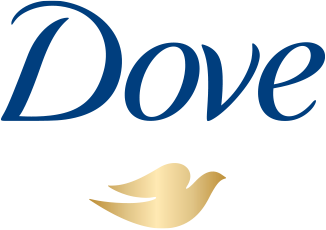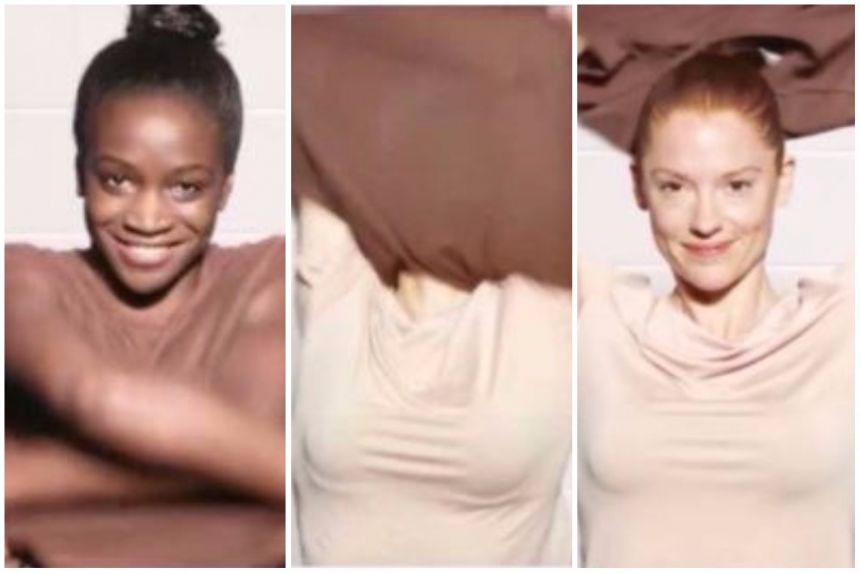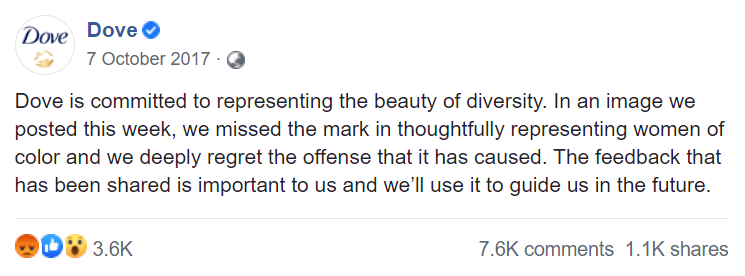Difference between revisions of "Dove"
(Created page with "thumb <b>Dove</b> is a personal care brand owned British-Dutch by Unilever originating in the United States. The products are sold in more than 150 coun...") |
m |
||
| Line 1: | Line 1: | ||
[[File:Dove logo.png|thumb]] | [[File:Dove logo.png|thumb]] | ||
| − | <b>Dove</b> is a personal care | + | <b>Dove</b> is a personal care company owned by Unilever, British-Dutch, originating in the United States. The goods are available in more than 150 countries and are marketed to women, men and children alike. The Dove logo is a silhouette profile of a brand's namesake bird.<ref>[https://en.wikipedia.org/wiki/Dove_(toiletries) Dove]. Retrieved December 25, 2020.</ref> |
| − | In 2017, Dove faced | + | In 2017, Dove was faced with a body wash commercial featuring a black woman stripping off her top to expose a white woman, with a lot of social media users calling it racist. |
==The Controversy== | ==The Controversy== | ||
[[File:Dove1.jpg|thumb]] | [[File:Dove1.jpg|thumb]] | ||
| − | In May 2011, | + | In May 2011, after posting an advertisement for their body wash, Dove made controversy and allegations of bigotry, featuring three women with contrasting skin tones side by side in front of the "before and after" photograph with cracked and smooth skin, with a black woman under the "before" and a white woman under the "after". |
| − | In October 2017, | + | In October 2017, three second videos of the Dove body lotion used on their Facebook page in the United States sparked backlash and allegations of racism.<ref>Slawson,Nicola. [https://www.theguardian.com/world/2017/oct/08/dove-apologises-for-ad-showing-black-woman-turning-into-white-one Dove apologises for ad showing black woman turning into white one], The Guardian, 8 October 2017. Retrieved December 25, 2020.</ref> The video clip showed a black woman lifting her T-Shirt to expose a white woman who then lifted her own T-Shirt to reveal an Asian woman. The full thirty second TV commercial version featured seven women of varying races and ages. |
| − | The ad | + | The ad prompted backlash, prompting Dove to delete the advertisement, stating that he "deeply regretted the offense it caused." Dove further explained that the "video was meant to express that Dove body wash is a celebration of diversity for any woman..." The black woman in the commercial, Lola Ogunyemi, said that the ad had been misinterpreted and defended Dove. |
==Backlash== | ==Backlash== | ||
| − | Social media users said there were | + | Social media users said there were racial consequences in a soap commercial that featured a black woman turning into a white woman. Many who protested the advertising said it shows that black skin is bad and white skin is clean, and recalled that there is a historic history of racism in soap advertisements. |
| − | “Dove's marketing team is fundamentally racist. A clean body is not a white body. Black bodies aren't systematically dirty,” wrote Abigail Sewell, 34, | + | “Dove's marketing team is fundamentally racist. A clean body is not a white body. Black bodies aren't systematically dirty,” wrote Abigail Sewell, 34, professor of sociology at Emory University in Atlanta, on Facebook.<ref>[https://www.independent.co.uk/news/business/dove-racist-advert-ongoing-controversy-facebook-body-wash-commercial-unilever-a7989956.html Dove under fire despite apology over 'racist' body wash advert], Independent.co.uk, 9 October 2017. Retrieved December 25, 2020.</ref> |
==Apology== | ==Apology== | ||
[[File:Dove Apology.png|thumb]] | [[File:Dove Apology.png|thumb]] | ||
| − | + | Offensive social media users protested, and the organization immediately apologised. But Dove's two-way Twitter note and a little longer [https://www.facebook.com/DoveUS/posts/1493719354007207 message on Facebook] it left it vague just what the ad was trying to express. | |
"<i>An image we recently posted on Facebook missed the mark in representing women of color thoughtfully. We deeply regret the offense it caused</i>."<ref>[https://twitter.com/Dove/status/916731793927278592 Dove Official Twitter], 8 October 2017. Retrieved December 25, 2020.</ref> | "<i>An image we recently posted on Facebook missed the mark in representing women of color thoughtfully. We deeply regret the offense it caused</i>."<ref>[https://twitter.com/Dove/status/916731793927278592 Dove Official Twitter], 8 October 2017. Retrieved December 25, 2020.</ref> | ||
Revision as of 16:02, 11 March 2021
Dove is a personal care company owned by Unilever, British-Dutch, originating in the United States. The goods are available in more than 150 countries and are marketed to women, men and children alike. The Dove logo is a silhouette profile of a brand's namesake bird.[1]
In 2017, Dove was faced with a body wash commercial featuring a black woman stripping off her top to expose a white woman, with a lot of social media users calling it racist.
The Controversy
In May 2011, after posting an advertisement for their body wash, Dove made controversy and allegations of bigotry, featuring three women with contrasting skin tones side by side in front of the "before and after" photograph with cracked and smooth skin, with a black woman under the "before" and a white woman under the "after".
In October 2017, three second videos of the Dove body lotion used on their Facebook page in the United States sparked backlash and allegations of racism.[2] The video clip showed a black woman lifting her T-Shirt to expose a white woman who then lifted her own T-Shirt to reveal an Asian woman. The full thirty second TV commercial version featured seven women of varying races and ages.
The ad prompted backlash, prompting Dove to delete the advertisement, stating that he "deeply regretted the offense it caused." Dove further explained that the "video was meant to express that Dove body wash is a celebration of diversity for any woman..." The black woman in the commercial, Lola Ogunyemi, said that the ad had been misinterpreted and defended Dove.
Backlash
Social media users said there were racial consequences in a soap commercial that featured a black woman turning into a white woman. Many who protested the advertising said it shows that black skin is bad and white skin is clean, and recalled that there is a historic history of racism in soap advertisements.
“Dove's marketing team is fundamentally racist. A clean body is not a white body. Black bodies aren't systematically dirty,” wrote Abigail Sewell, 34, professor of sociology at Emory University in Atlanta, on Facebook.[3]
Apology
Offensive social media users protested, and the organization immediately apologised. But Dove's two-way Twitter note and a little longer message on Facebook it left it vague just what the ad was trying to express. "An image we recently posted on Facebook missed the mark in representing women of color thoughtfully. We deeply regret the offense it caused."[4]
Unilever, Dove’s parent company, did not respond to Washington Post requests for comment on the ad.[5]
External Link
Watch the video at Independent
References
- ↑ Dove. Retrieved December 25, 2020.
- ↑ Slawson,Nicola. Dove apologises for ad showing black woman turning into white one, The Guardian, 8 October 2017. Retrieved December 25, 2020.
- ↑ Dove under fire despite apology over 'racist' body wash advert, Independent.co.uk, 9 October 2017. Retrieved December 25, 2020.
- ↑ Dove Official Twitter, 8 October 2017. Retrieved December 25, 2020.
- ↑ Wootson Jr., Cleve R. A Dove ad showed a black woman turning herself white. The backlash is growing., The Washington Post, 10 October 2017. Retrieved December 25, 2020.


